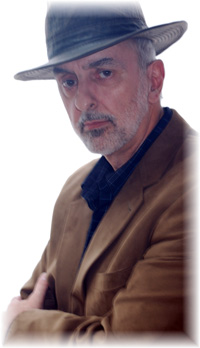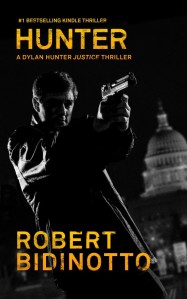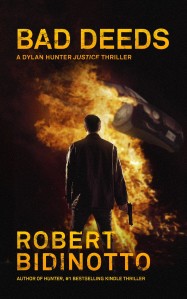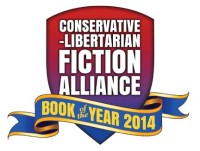Fiction genres tend to have porous boundaries, mixing and blending into each other. Many books are hybrids that cross genres.
For instance, you can’t define a “thriller” solely by its settings, since they can take place almost anywhere, and in any time period. But I think all thrillers share most of these elements:
 * High concept — some startling, even outlandish premise that immediately captures the reader’s imagination. Think of books like Mark Greaney’s The Gray Man, Alex Berenson’s The Faithful Spy, Vince Flynn’s Transfer of Power and Term Limits, Thomas Harris’s Black Sunday, Frederick Forsyth’s Day of the Jackal, and Dan Brown’s The Da Vinci Code.
* High concept — some startling, even outlandish premise that immediately captures the reader’s imagination. Think of books like Mark Greaney’s The Gray Man, Alex Berenson’s The Faithful Spy, Vince Flynn’s Transfer of Power and Term Limits, Thomas Harris’s Black Sunday, Frederick Forsyth’s Day of the Jackal, and Dan Brown’s The Da Vinci Code.
* High stakes: usually some life-and-death threat(s) to the protagonist and/or to people and values vitally important to the protagonist. Examples: Alistair MacLean’s The Guns of Navarone, Peter Benchley’s Jaws, Vince Flynn’s Transfer of Power, Jack Higgins’s The Eagle Has Landed. The high stakes compel the protagonist to take…
* Courageous actions, often involving violence, to overcome the threats, which present themselves as…
 * Constant, escalating perils, in the forms of great obstacles, ordeals, and/or opponents. In The Gray Man, the protagonist has to run a gauntlet of highly trained killers across Europe to rescue some children. In The Guns of Navarone, a small commando team must face a violent storm at sea that sinks their boat, then climb a sheer cliff in the middle of the gale, where one team member breaks his leg; then fight a host of Nazis; then find a traitor in their midst — all to blow up fortified German guns and allow the rescue of 6,000 Allied troops about to die. These perils come at the reader at…
* Constant, escalating perils, in the forms of great obstacles, ordeals, and/or opponents. In The Gray Man, the protagonist has to run a gauntlet of highly trained killers across Europe to rescue some children. In The Guns of Navarone, a small commando team must face a violent storm at sea that sinks their boat, then climb a sheer cliff in the middle of the gale, where one team member breaks his leg; then fight a host of Nazis; then find a traitor in their midst — all to blow up fortified German guns and allow the rescue of 6,000 Allied troops about to die. These perils come at the reader at…
 * A fast, relentless pace — often in the form of a race against time to stop the threat. In my thriller HUNTER, acts of violence escalated and accelerated throughout the book, while the pending release from prison of a sadistic sociopath provided ongoing suspense. His kidnapping of two women near the book’s climax ratcheted up the suspense and the pace even further, as the hero had to race to rescue them before they were tortured and murdered. In the sequel, BAD DEEDS, two ecoterrorists launched an escalating campaign of deadly bombings, and the hero and heroine had to stop them before an innocent family was murdered in a literal “ticking bomb” scenario. All of this is designed to make the reader feel…
* A fast, relentless pace — often in the form of a race against time to stop the threat. In my thriller HUNTER, acts of violence escalated and accelerated throughout the book, while the pending release from prison of a sadistic sociopath provided ongoing suspense. His kidnapping of two women near the book’s climax ratcheted up the suspense and the pace even further, as the hero had to race to rescue them before they were tortured and murdered. In the sequel, BAD DEEDS, two ecoterrorists launched an escalating campaign of deadly bombings, and the hero and heroine had to stop them before an innocent family was murdered in a literal “ticking bomb” scenario. All of this is designed to make the reader feel…
* Intense, mounting suspense and anxiety about the outcome — which compels the reader to keep turning pages and not put the book down till the end.
Thriller readers expect these elements. A good thriller is a roller coaster ride of relentless action, nonstop thrills, and gnawing suspense. You can write a great story without most of these elements, but it won’t be a thriller.
 Consider, for example, how mysteries differ from thrillers. Mysteries are usually about solving a crime that has already occurred, in the pursuit of justice. Mysteries give readers the cerebral satisfaction of figuring out and resolving their curiosity about “whodunit.” Information is withheld from the reader, who (if the novelist is skilled) always remains one step behind the protagonist/investigator.
Consider, for example, how mysteries differ from thrillers. Mysteries are usually about solving a crime that has already occurred, in the pursuit of justice. Mysteries give readers the cerebral satisfaction of figuring out and resolving their curiosity about “whodunit.” Information is withheld from the reader, who (if the novelist is skilled) always remains one step behind the protagonist/investigator.
 In thrillers, though, the main focus is on a future, impending threat, and on the action taken by the hero or heroine to stop the threat and, often, to exact justice. A variation is the revenge story, where a crime has already occurred, and the protagonist is going after the bad guys through action rather than detection alone. In thrillers, the reader is often provided more information than the protagonist knows, which ramps up the tension and suspense. (Will he learn the truth in time?)
In thrillers, though, the main focus is on a future, impending threat, and on the action taken by the hero or heroine to stop the threat and, often, to exact justice. A variation is the revenge story, where a crime has already occurred, and the protagonist is going after the bad guys through action rather than detection alone. In thrillers, the reader is often provided more information than the protagonist knows, which ramps up the tension and suspense. (Will he learn the truth in time?)
There are hybrid mystery-thrillers, of course, where the probing hero arouses the threatened culprits to retaliate — for example, The Girl with the Dragon Tattoo. Whether the story is considered a mystery or a thriller usually depends on which elements predominate. The novels of Robert Crais, Robert B. Parker, and Mickey Spillane, for example, could be plausibly classified in either genre, since they contain many elements of both.
The same can be said of other kinds of cross-genre hybrids. Is The Silence of the Lambs a horror novel, or a thriller? I’d say  “thriller,” because as horrifying as the events are, the dominant elements are the thriller components. On the other hand, is the film “Star Wars” sci-fi, or a thriller? Because the interplanetary setting and alien characters are such strong elements of the story, I’d say “sci-fi,” though it has every element of a thriller. Likewise, is “High Noon” a thriller or a Western? I’d say the same thing applies: The setting is so much of the story that I’d have to classify it as a Western, though it is a great thriller, too.
“thriller,” because as horrifying as the events are, the dominant elements are the thriller components. On the other hand, is the film “Star Wars” sci-fi, or a thriller? Because the interplanetary setting and alien characters are such strong elements of the story, I’d say “sci-fi,” though it has every element of a thriller. Likewise, is “High Noon” a thriller or a Western? I’d say the same thing applies: The setting is so much of the story that I’d have to classify it as a Western, though it is a great thriller, too.
Similar considerations apply to defining thriller subcategories. These are established largely by the story settings, which can often overlap in various hybrid combinations.

To show the versatility and ever-evolving nature of the thriller genre, here are just a few thriller subcategories and their noted writers — and also some separate, established genres that frequently employ many thriller elements:
1. Generic Action/Adventure (John D. MacDonald, Lee Child, Clive Cussler, Peter Benchley’s Jaws, Wilbur Smith’s Hungry As the Sea.)

2. International Espionage (Robert Ludlum, Ian Fleming, Daniel Silva, Gayle Lynds). These often blend and morph with…
3. Political Intrigue/Conspiracy (Brad Thor, Vince Flynn, David Baldacci, Nelson DeMille). These, too, often blend with…
 4. Military (Tom Clancy, Brad Taylor, Andy McNab).
4. Military (Tom Clancy, Brad Taylor, Andy McNab).
5. Crime (My HUNTER, Ira Levin’s A Kiss Before Dying, Thomas Harris’s Hannibal Lector stories, Mickey Spillane’s Mike Hammer stories). These sometimes blend with…
6. Legal (John Grisham, Scott Turow, Lisa Scottoline, Michael Connelly’s “Lincoln Lawyer” series).
7. Historical (Ken Follett’s The Man from St. Petersburg, Wilbur Smith’s African adventure sagas).
8. Medical (Robin Cook, Tess Gerritsen, C.J. Lyons, Patricia Cornwell).
 9. Techno-thriller (Tom Clancy, Michael Crichton, Dan Brown’s Digital Fortress).
9. Techno-thriller (Tom Clancy, Michael Crichton, Dan Brown’s Digital Fortress).
10. Disaster/Apocalypse (Think of all the Irwin Allen disaster films of the 1970s. Today, these are often based on sci-fi premises. And a classic is War of the Worlds.)
Here are some categories of fiction that are often considered to be their own genres, but which rely on many thriller elements:
11. Romantic Suspense (Nora Roberts, Linda Howard, and thousands of others).
12. Psychological Suspense (Most Hitchcock movies like “Vertigo” and “Rear Window”; David Morrell’s “damaged hero” thrillers; Patricia Highsmith’s The Talented Mr. Ripley; Richard  Condon’s brilliant hybrid political/military/psychological/international espionage thriller The Manchurian Candidate. Romantic and psychological suspense thrillers are usually characterized by the anticipation of violent action, rather than violence throughout).
Condon’s brilliant hybrid political/military/psychological/international espionage thriller The Manchurian Candidate. Romantic and psychological suspense thrillers are usually characterized by the anticipation of violent action, rather than violence throughout).
13. Westerns (“High Noon” is a classic example. A completely original example of a hybrid form is Michael Crichton’s film “Westworld” — an imaginative blend of sci-fi and Western, but in the classic thriller pattern).
14. Horror (Stephen King, Dean Koontz, Ira Levin, Stephanie Meyer. While the creepy premises and settings put these in their own category, they unquestionably employ all the elements of the thriller form.)
 Creative novelists are constantly carving out new thriller subgenres and subcategories, simply by using fresh settings or new, imaginative “high concepts.” Grisham helped establish the “legal thriller”; Clancy invented the “techno-thriller”; Dick Francis created a mystery-thriller hybrid set in the world of horse racing. They’ve all spawned numerous imitators and knock-offs.
Creative novelists are constantly carving out new thriller subgenres and subcategories, simply by using fresh settings or new, imaginative “high concepts.” Grisham helped establish the “legal thriller”; Clancy invented the “techno-thriller”; Dick Francis created a mystery-thriller hybrid set in the world of horse racing. They’ve all spawned numerous imitators and knock-offs.
And when you think about it, is a tale about vampires, or “hunger games,” or unstoppable “Terminators” really in a separate genre — or is it merely a new “high concept” variation of the classic thriller?
To thriller fans, the important thing is not the setting or somebody’s artificial category differentiation. It’s the thrill ride itself. What counts is a tale that gives them a riveting, imaginative premise; high stakes; courageous protagonists taking heroic, violent actions against formidable foes, in the face of constant pitfalls and terrors; a relentless pace; and ever-mounting, white-knuckle suspense until the satisfying climax, where justice triumphs.
That, to them, is “a great thriller.” It is a story form as old as Homer — and even older, as primitive people gathered around their tribal campfire to listen raptly, while a skilled storyteller wove enthralling tales of adventure.

 I’ve been pondering the whole way that books are categorized and classified, and how “genres” and “subgenres” are generated. I do so because we indie authors are always agonizing about how to categorize our own books within the existing genre and subgenre classifications on Amazon and elsewhere.
I’ve been pondering the whole way that books are categorized and classified, and how “genres” and “subgenres” are generated. I do so because we indie authors are always agonizing about how to categorize our own books within the existing genre and subgenre classifications on Amazon and elsewhere.









 9. Techno-thriller (Tom Clancy, Michael Crichton, Dan Brown’s Digital Fortress).
9. Techno-thriller (Tom Clancy, Michael Crichton, Dan Brown’s Digital Fortress).








 Photo (c) by Debbie Scott
Photo (c) by Debbie Scott




